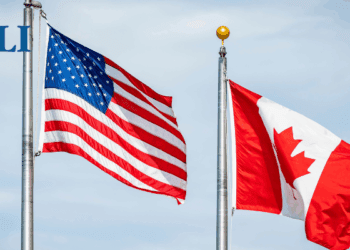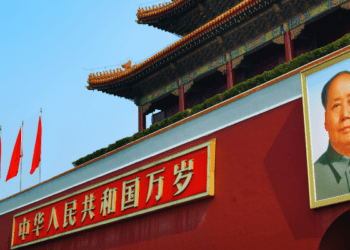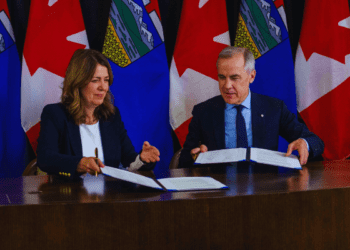January 10, 2013 – MLI Managing Director Brian Lee Crowley says a different approach to public sector wage negotiations is needed, one where strikes have no place. He explains why in his latest Postmedia column below, which appeared in the Ottawa Citizen, Calgary Herald, Vancouver Sun, Montreal Gazette, Edmonton Journal, Saskatoon’s StarPhoenix, Regina’s Leader-Post, Windsor Star, The Province, and Canada.com.
Public sector workers should not have a right to strike
By Brian Lee Crowley, Ottawa Citizen, January 10, 2013
Rotating strikes by Ontario teachers are only the latest example of what a terrible mistake we made in the 1960s and 1970s when the decision was made by various governments to enact legislation granting public sector workers the right to strike.
Few today even remember that powerful public sector trade unions are a relatively recent creation. And while trade unions before the grant of the right to strike amusingly described public sector labour negotiations as “collective begging,” the very special and unusual position of public sector workers makes strikes there unusually damaging to the rest of society.
After a decade of buying labour peace, the Ontario government, facing a crisis of deteriorating finances, has taken the classic last-ditch measure of all governments faced with intractable unions and their power to damage large swaths of society by stopping work. They have used a special law to put an end to this particular round of negotiations, to the fury of the unions, who are now retaliating.
Surely, however, the problem is with the principle of a right to strike in the public sector, not its use in any particular set of circumstances. So rather than deal awkwardly on a case-by-case basis with the consequences of strikes, we should get back to fundamentals and ask if they are an appropriate tool for public sector labour relations at all.
The reason why public sector workers were not entitled to strike before the 1970s was not some fit of forgetfulness where we neglected to include them in a right granted to private sector workers. It was a thoughtful recognition that private sector and public sector employers are simply not the same animal. Governments exercise a monopoly over the provision of many vital services in a way that virtually no private sector employer ever can.
If the unionized autoworkers go on strike at GM or Ford or Chrysler, you can still buy a car from (non-union) Honda or Hyundai or Toyota. If Air Canada goes on strike, you can still fly WestJet or Porter or drive or take the train. But if the nurses, teachers, air traffic controllers or hydro workers strike, the service they represent is withdrawn.
This draws the public into public sector labour disputes in a way that hardly ever occurs in private sector negotiations. And politicians always have a nervous eye on voters’ discontent. Thus for years public sector workers were essentially not allowed to strike. The consequence of public sector workers effectively wielding a veto over whether public services were available was that the state restricted the damage that power could do.
There is another way in which the public sector employer is different than the private employer. Companies face the discipline of the bottom line: they must make money selling goods or services that people want to buy at prices they are willing to pay. If private employers fail this test, they go out of business. Governments cannot go out of business. They pay their bills through taxation, which means they need not trouble themselves too much about whether people think they are getting good value for their tax dollars.
Finally, the customers for public services, people using hospitals and schools, for instance, don’t pay the full cost of labour settlements the way customers of private sector firms do. The costs of public sector settlements fall on all taxpayers, and those costs are all tangled up in a complex tax burden rather than a straightforward bill for a private service that consumers can understand.
In the private sector, union power is in terminal decline as work shifts away from traditional blue collar occupations in natural resources and manufacturing to white collar services where people have more confidence in their own abilities to represent their own on-the-job interests and are more reluctant to see a bureaucratic third party representing their interests to their employers. Free trade and globalization mean that workers and firms in Canada must work together to overcome foreign competition. Their interests are not opposed, but aligned.
The one area of the economy where unionism still holds unchallenged sway is the public sector, and that is because the unique features of government employers and the power that confers on their employees: the politicization of public sector negotiations, the lack of the discipline of the bottom line and the way the cost of labour agreements is spread across all taxpayers.
These differences cry out for a different approach to public sector wage negotiations, one where strikes have no place. Governments should not be able to set public sector wages and working conditions unilaterally either, so independent third parties would have to arbitrate the demands of both sides, with the driving force a mirroring of relevant private sector wages rather than the egregious power of public sector strikes to terrify politicians and harm citizens.
Brian Lee Crowley is managing director of the Macdonald-Laurier Institute, an independent non-partisan public policy think tank in Ottawa: www.macdonaldlaurier.ca.
© Copyright (c) The Ottawa Citizen
—




